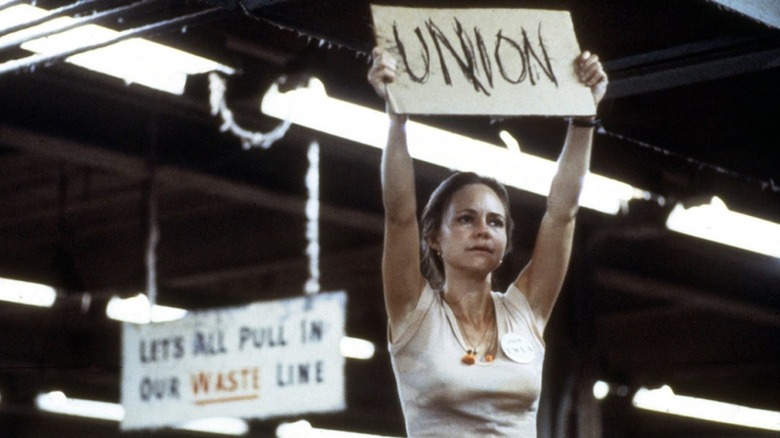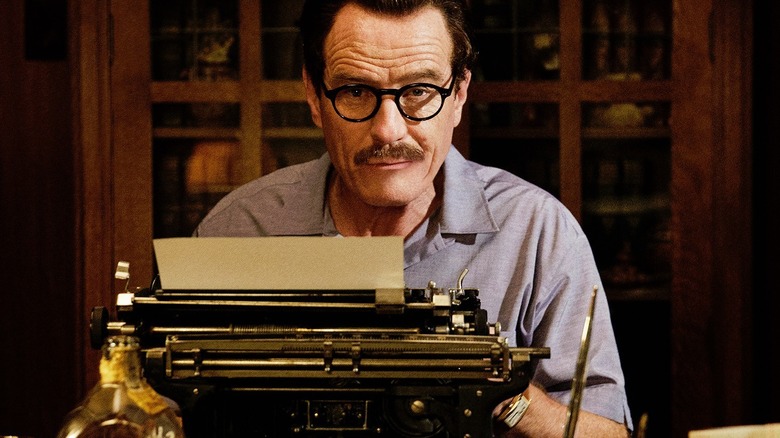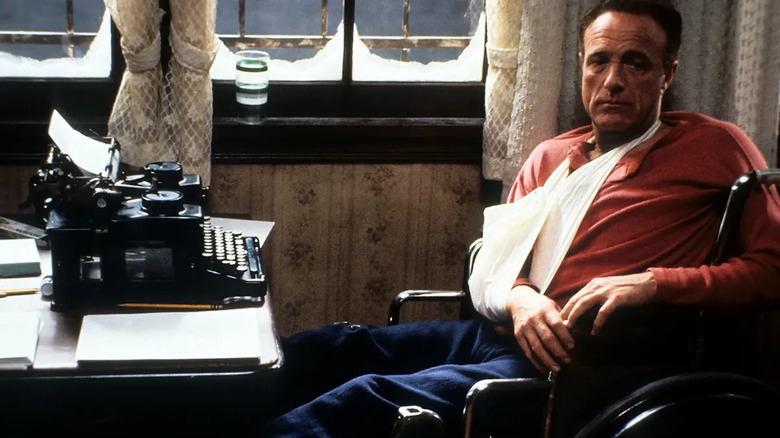The Writers Guild Of America Has Authorized A Strike — Here's What That Means For Film And TV Fans
The Writers Guild of America has voted in favor of a strike, with the organization's members voting near-unanimously for the measure. The WGA revealed that 97.8 percent of its members who voted were in favor of a potential strike if an agreement cannot be reached with the Alliance of Motion Picture and Television Producers (AMPTP), which represents the majority of film and TV production in Hollywood, with studios like Disney and Netflix, among others, under that umbrella.
WGA members have authorized a strike by 97.85%. Writers are ready for a deal from the studios that allows writers to share in the success of the content they create and build a stable life. #WGAStrong pic.twitter.com/gnCJsgH8Sg
— Writers Guild of America West (@WGAWest) April 17, 2023
79 percent of the guild's eligible members took part in the vote, and there was unprecedented support in favor of a strike. That doesn't mean a strike is happening (we'll get into that shortly), but it means the membership of the WGA is fully prepared to do so. In a memo to its members obtained by /Film, the WGA said the following:
"Our membership has spoken. You have expressed your collective strength, solidarity, and the demand for meaningful change in overwhelming numbers. Armed with this demonstration of unity and resolve, we will continue to work at the negotiating table to achieve a fair contract for all writers."
The potential WGA strike largely comes down to wanting better compensation for writers working in the movie and TV business as the industry has been radically changed by streaming since the last round of contract negotiations. The WGA spoke to that in the memo:
"The companies have used the transition to streaming to cut writer pay and separate writing from production, worsening working conditions for series writers at all levels. On TV staffs, more writers are working at minimum regardless of experience, often for fewer weeks, or in mini-rooms, while showrunners are left without a writing staff to complete the season. And while series budgets have soared over the past decade, median writer-producer pay has fallen."
What happens next?
As of right now, a strike is not imminent and it is believed that the strong support from the WGA membership may actually go a long way in preventing that from happening. That said, the deadline is fast approaching with the date set for May 1, just a couple of weeks from now. If the WGA and AMPTP can't reach an agreement by that time, the full membership of 11,500 TV and movie writers could very well go on strike. A similar situation was narrowly avoided in 2017.
The goal of the WGA in the negotiations is to secure better pay for streaming shows and to raise the floor for base pay. In traditional TV, syndication and other revenue streams helped writers get by well after a job concluded. Royalties have changed radically thanks to the advent of streaming. Other factors, such as declines at the box office and a decline in the home video market, have also impacted pay. Concerns have also been raised regarding AI and the role it may play in the future, with programs like ChatGPT rising to prominence in recent months.
The AMPTP did respond to the strike authorization vote, saying the following:
"Our goal is, and continues to be, to reach a fair and reasonable agreement. An agreement is only possible if the Guild is committed to turning its focus to serious bargaining by engaging in full discussions of the issues with the Companies and searching for reasonable compromises."
What happens if the WGA strikes?
Both sides would certainly like to avoid a strike. For writers, it could mean weeks — if not months — of nobody in the WGA getting paid. For studios and streaming services, it would mean a lengthy period of time where production on TV shows and movies would come to a grinding halt. This is where it begins to impact those who merely enjoy TV and movies, as things that are in the pipeline could be greatly disrupted.
The WGA has gone on strike several times in the past, most recently in 2007/2008. That strike brought Hollywood to its knees and was a defining moment in the modern era of the business. The strike, in total, lasted for exactly 100 days. The impact of that strike was massive, to say the least of it, with the cost to the industry estimated to be as high as $2.1 billion. Things get expensive when a bullet train suddenly stops moving. What you get when that happens is nothing shy of a trainwreck.
During the last strike, the pilot season was all but ruined for the major TV networks, while movies like "Quantum of Solace" and "Transformers: Revenge of the Fallen" were caught in the crosshairs and suffered as a result. In short, everyone on both sides has a great deal of motivation to prevent this from happening again. But if the WGA feels their concerns are not addressed properly, they clearly will not hesitate to pull the trigger (and they should), and things could get very messy if that happens.


